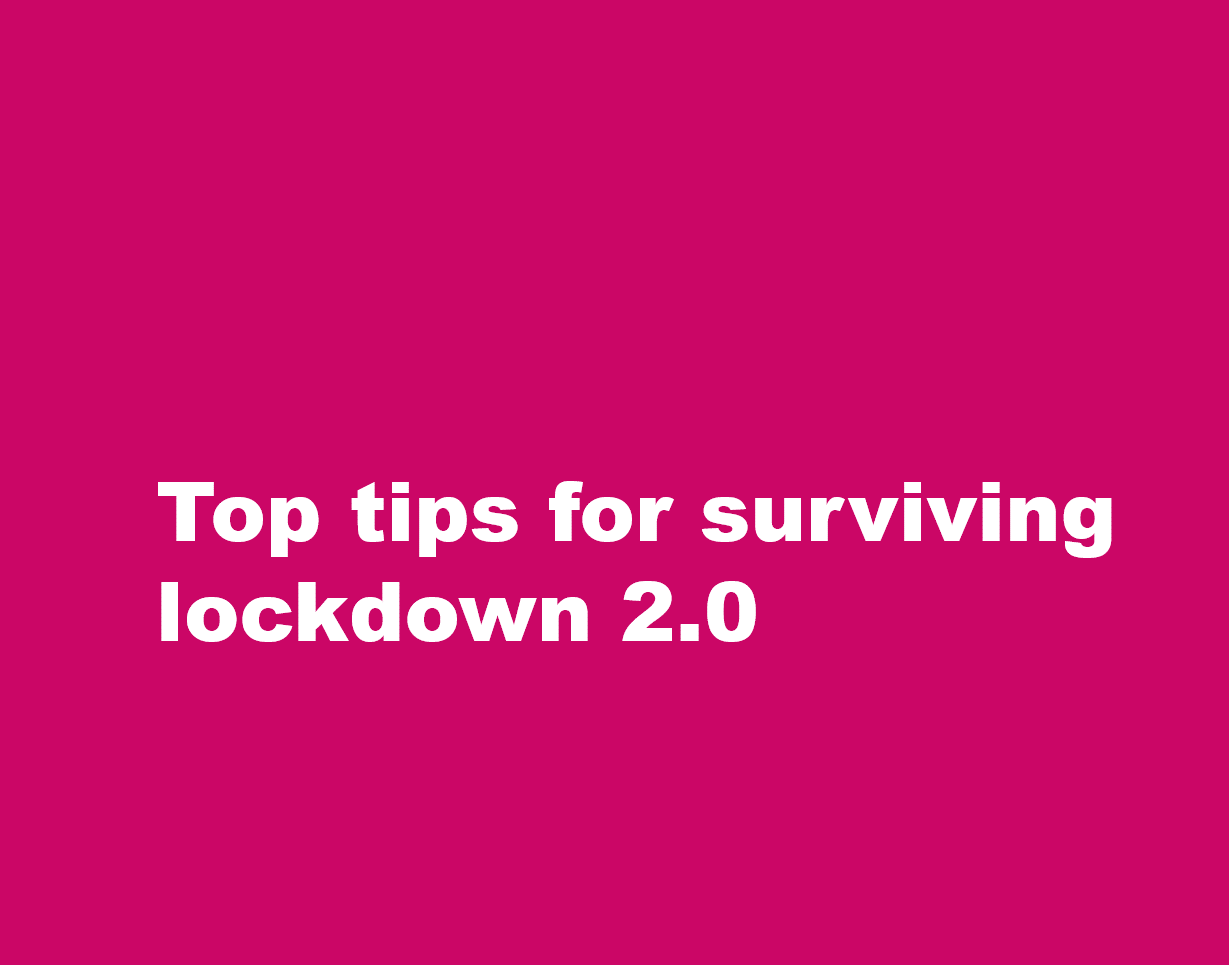There’s a feeling of deja-vu as we enter into lockdown 2. However, as the nights draw in and we’re stuck at home unable to socialise with our family and friends, many of us are feeling like it’s going to be an exceptionally long month. But don’t worry, we’ve collated our top tips to help you through November and advice on how to beat those lockdown blues.
1: STAY ACTIVE AND REDUCE YOUR STRESS LEVELS
Research shows that physical activity can boost self-esteem, mood and sleep as well as reducing stress and anxiety – which is the perfect antidote to help get us through the long, cold Covid winter.
From enjoying the outdoors, exercising at home, or dusting down those trainers and pumping the pavements – there’s lots of options to ensure you stay active and reduce your stress levels. Not sure about the new lockdown exercise rules, find out what can and can’t do in England this November here.
2: DEALING WITH ANXIETY
It’s natural to feel anxious during times of uncertainty. Public Health England has provided information about things you can do to maintain your mental wellbeing and deal with anxiety about the coronavirus (COVID-19) outbreak. Read the 10 top-tips here.
3: MAKE HOMEWORKING WORK FOR YOU
Over the last six months, many of us have had to adjust to a new working environment. Although working at home can feel liberating, it also brings its own challenges. Alongside feelings of isolation and loneliness, many people adapting to homeworking find ‘switching off’ and separating work life from home life problematic. Here’s our top 10 tips to help you make the most of homeworking.
4: BE INFORMED
CNTW has a dedicated area on its website for information about Coronavirus, including links to up-to-date Government & NHS guidance, guidance in a range of Easy Read and accessible formats, and advice for patients, carers and staff on looking after your mental health. Visit it here.
5: STAY SAFE ONLINE
Given many of us are spending more time online, there is a risk that extremists may exploit this situation by sharing harmful misinformation and conspiracy theories and targeting young people directly.
When you are online, stick to reliable sources like government and NHS websites and do not get pulled in by the ‘rumour mill’. The ‘SHARE checklist’ is a really useful way to make sure you’re not contributing to the spread of harmful content about #coronavirus – find it here.
6: GET SOME SLEEP
New research reveals that more than four in 10 adults are experiencing trouble sleeping during COVID-19, with younger adults more affected. To improve sleep and support adult mental wellbeing Public Health England’s Every Mind Matters website now includes new NHS-approved expert tips and advice on improving your sleep – find out more here.
7: BE MINDFUL
Many of us are worried about coronavirus (Covid-19) and how it could affect our life. Now, more so than ever, it’s really important you take care of your mental health.
It can be easy to rush through life, without stopping to notice much. But, paying more attention to the present moment – can improve your mental wellbeing. One strategy to help is Mindfulness. Click here to find out more.
8: LOOK AFTER YOUR MENTAL HEALTH
If you’re feeling anxious or worried about the Coronavirus, or how you can look after your mental health while staying at home, there are things you can do to support and manage our wellbeing. Check out the following articles; taking care of your mental health and wellbeing from the Mental Health Foundation, mental wellbeing while staying at home top tips from the NHS and mental health tips during coronavirus from MIND.
9: STAY CONNECTED
At times of stress, we work better in company and with support. Try and keep in touch with your friends and family, by telephone, email or social media, or contact a helpline for emotional support. Find our more here.
If you are concerned about your Apprenticeship, or if you need any support or advice, please get in touch with us info@roveconsultancy.co.uk or speak to your manager at work.

